
Peace
The gospel claims something bold: God offers real peace. Peace with Him, peace inside yourself, and peace with other people. But that peace isn’t automatic…
A Psalm of David.
The Lord is my shepherd; I shall not want. He makes me lie down in green pastures. He leads me beside still waters. He restores my soul. He leads me in paths of righteousness for his name’s sake.
Even though I walk through the valley of the shadow of death, I will fear no evil, for you are with me; your rod and your staff, they comfort me.
You prepare a table before me in the presence of my enemies; you anoint my head with oil; my cup overflows. Surely goodness and mercy shall follow me all the days of my life, and I shall dwell in the house of the Lord forever.Psalm 23
As we stand at the threshold of 2025, it is natural to pause and reflect. We look back on 2024 with clarity, seeing both the triumphs and trials, but with no power to change the past. In contrast, we look forward to 2025 with uncertainty—unable to foresee what lies ahead, yet empowered with the opportunity to act, change, and grow. What a hopeful perspective! And we do not step into the unknown alone; we walk with our Shepherd.
Psalm 23 offers us a profound lens through which to understand our relationship with God. It reminds us of His care, His presence in danger, and His abundant provision. Let’s walk through this beloved Psalm together and uncover its timeless truths.
David opens the Psalm with a declaration and an identification: “The Lord is my shepherd; I shall not want.” Here, David, once a shepherd himself, draws from his own experience to describe God’s care. Just as a shepherd knows his sheep, provides for them, and protects them, so God is to us.
But this relationship is not automatic—it comes through faith in Christ. Only when we acknowledge Jesus as our Savior and Lord can we truly say, “The Lord is my shepherd.” It is not by existence but by grace and faith that we enter this relationship.
With the Shepherd, we find contentment: “I shall not want.” Our needs—both physical and spiritual—are met. He leads us to “green pastures”—places of nourishment and flourishing. More than material provision, God satisfies our souls with His goodness.
David does not ignore life’s hardships; instead, he acknowledges them: “Even though I walk through the valley of the shadow of death, I will fear no evil.” The valley represents life’s darkest trials—illness, loss, financial struggles, and broken relationships. Yet, even in these times, we need not fear. Why? Because “You are with me.”
God’s presence is not passive but active. David mentions the Shepherd’s “rod and staff”—tools used for guidance and protection. God not only walks beside us but also intervenes on our behalf, guiding us through confusion and rescuing us from danger. His presence is our greatest comfort.
The valleys of life are often where our faith grows the most. God may lead us through trials, not to harm us but to refine us, strengthen us, and draw us closer to Him.
David shifts the imagery from shepherd to host, saying: “You prepare a table before me in the presence of my enemies.”Here, God’s provision and blessing are celebrated—not in the absence of trouble, but in its midst.
The table represents abundance, favor, and joy. God’s goodness is not dependent on peaceful circumstances. Even when enemies—whether fear, temptation, or hardship—surround us, God provides and sustains us.
But can we recognize His blessings during difficulty? Mature faith sees God’s hand even in the storm. It finds joy in His presence, peace in His promises, and hope in His purposes.
David concludes with confidence: “Surely goodness and mercy shall follow me all the days of my life, and I shall dwell in the house of the Lord forever.” His assurance rests not on wishful thinking but on the covenantal faithfulness of God.
Goodness and mercy are not fleeting companions; they pursue us. As God’s covenant people, we are assured that He will care for us—not only in this life but for eternity.
Yet, this promise is relational. Those who truly know the Shepherd follow Him in obedience and worship. They recognize that the greatest blessing is not what the Shepherd gives but who the Shepherd is.
As we face the unknowns of 2025, may Psalm 23 anchor our hearts. Whether this year brings joy or hardship, abundance or trial, the Shepherd walks with us. He provides for us, protects us, and blesses us—even in life’s darkest valleys.
May our prayer be: “Lord, open my eyes to see Your blessings even in the hardest moments. Lead me in Your paths of righteousness, not for my sake but for Your glory.”
Let 2025 be a year where we know the Shepherd more intimately and follow Him more faithfully. For in His care, we lack nothing. Amen.

The gospel claims something bold: God offers real peace. Peace with Him, peace inside yourself, and peace with other people. But that peace isn’t automatic…

Advent starts by asking us to slow down and look past the distractions. Every culture wraps Christmas in its own extras—traditions, shopping, decorations, sentimental ideas.

After Paul left Galatia, other teachers came. They questioned Paul’s authority and offered the Galatians a far more “comfortable” message…
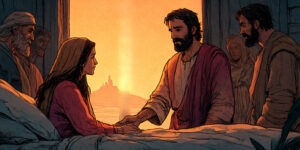
Jesus leaves the synagogue in Capernaum and steps into a home. Simon Peter’s mother-in-law lies with a high fever.
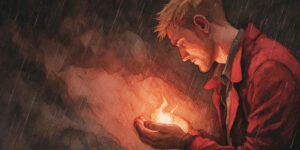
Paul writes to a church he has never visited, yet he sounds like a pastor who knows them well: he encourages, challenges, and points every road back to Christ…
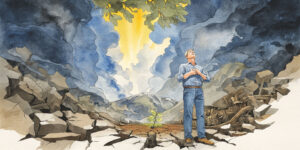
Biblical hope isn’t wishful thinking or daydreams. It is a confident expectation anchored in what God has already done in Christ and what he has promised to complete…
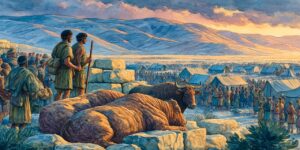
The story of Jabesh-Gilead opens like a political crisis—but it carries deep spiritual meaning. After Israel had settled in the Promised Land, their incomplete obedience left enemy nations still scattered
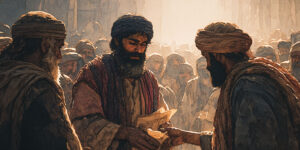
Israel was barely out of Egypt when another crisis surfaced—not water, food, or enemies, but leadership overload. Moses spent sunrise to sunset judging disputes for a nation of hundreds of
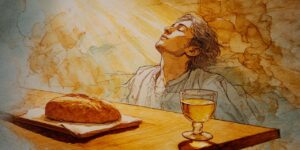
Paul writes to the church in Colossae with one urgent theme: don’t trade the real thing for a shadow…
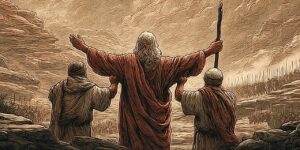
Moses stood where all could see, staff raised—no magic, just a visible confession: victory belongs to the Lord. When his arms drooped, Israel faltered; when Aaron and Hur braced them,